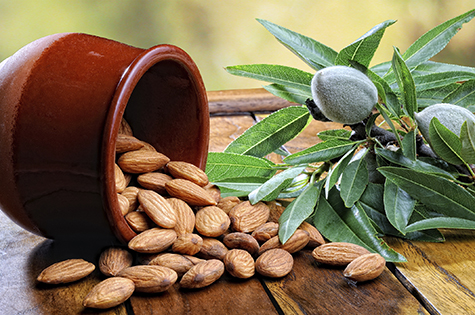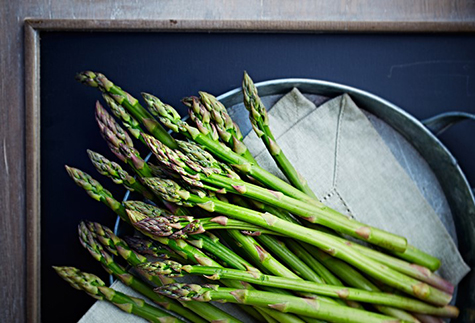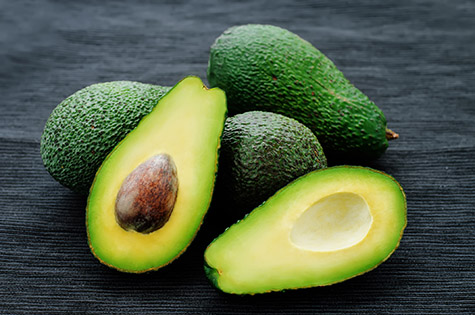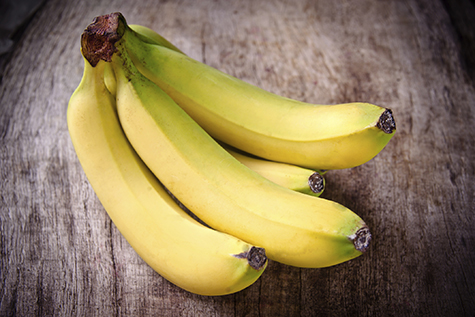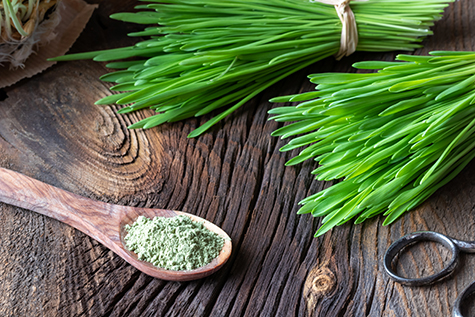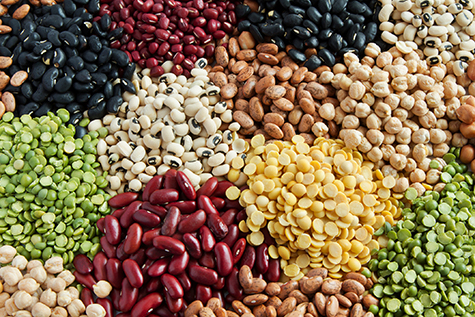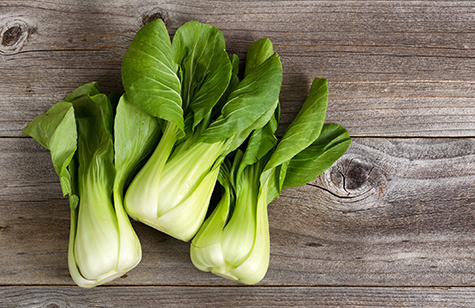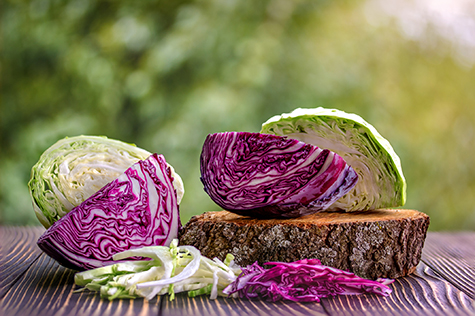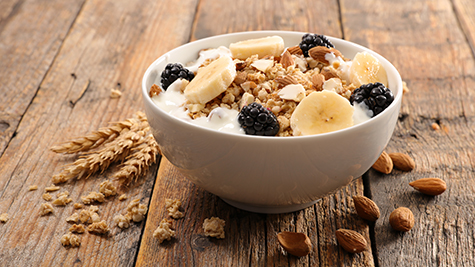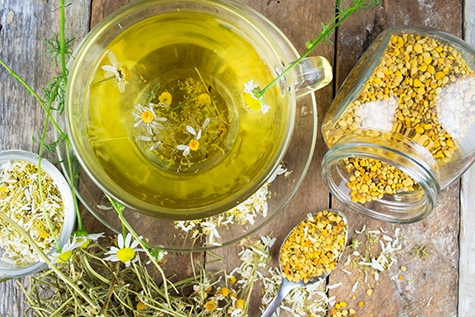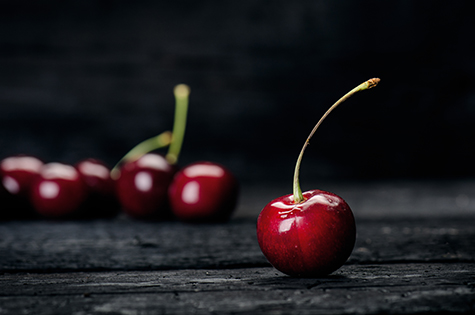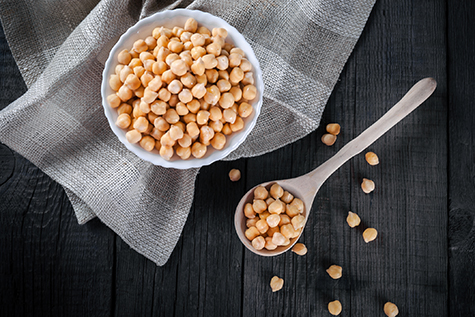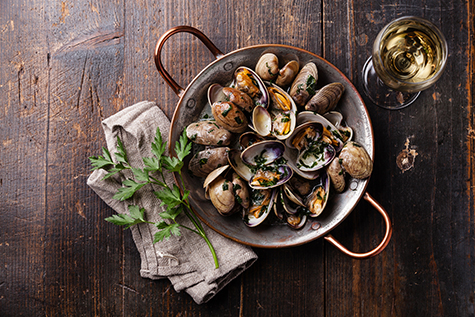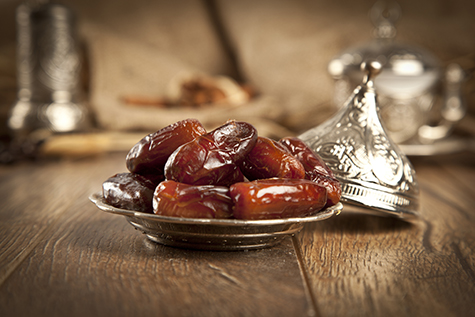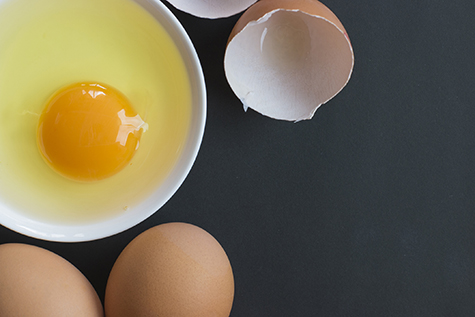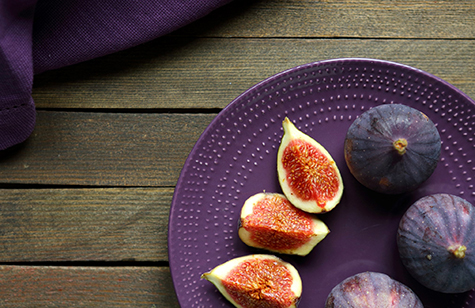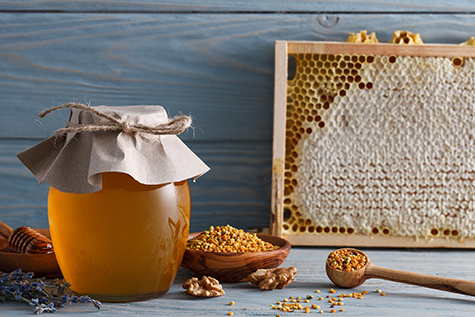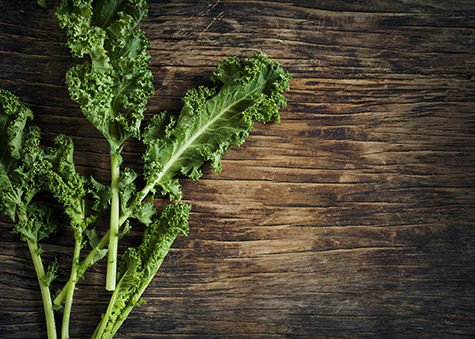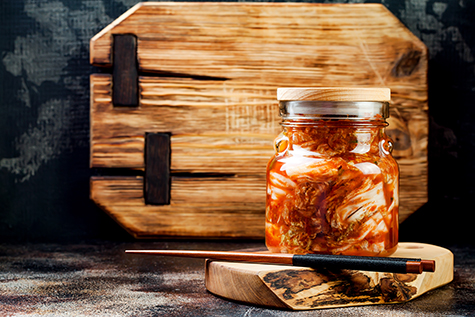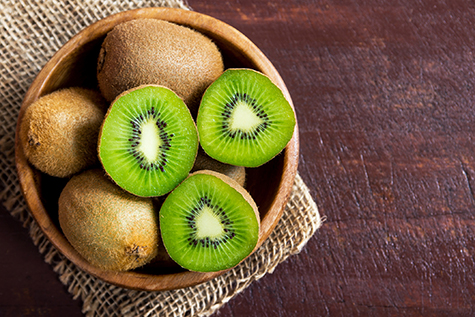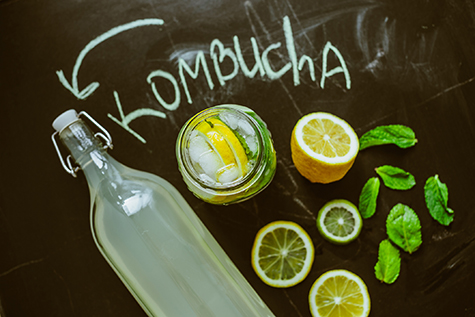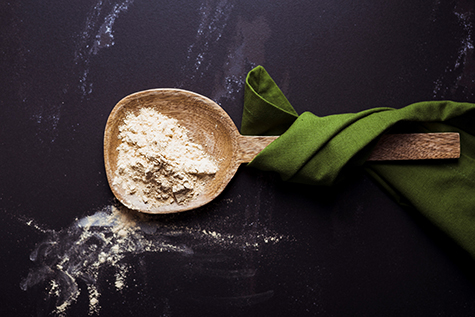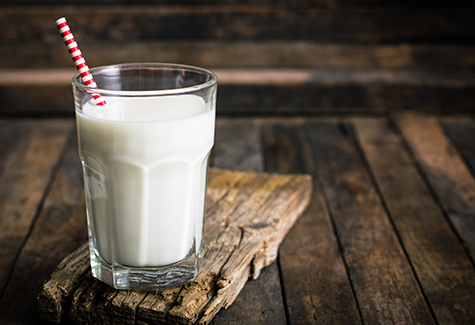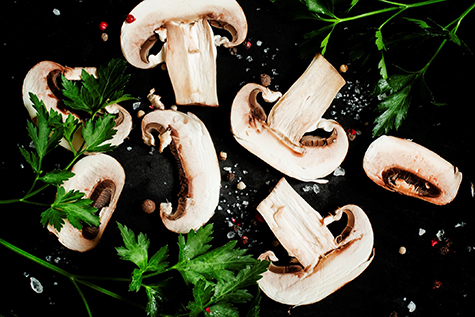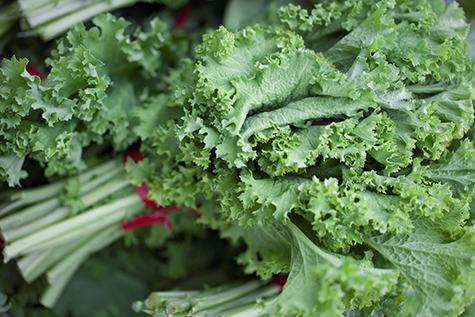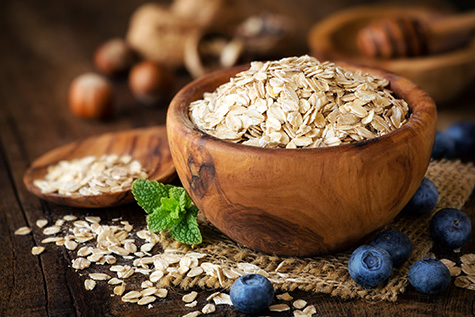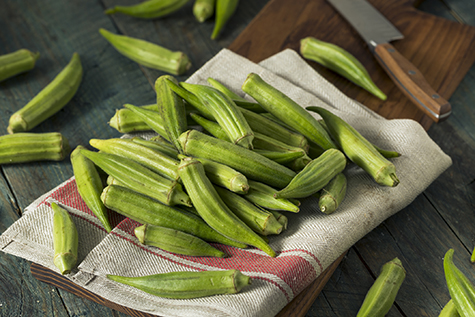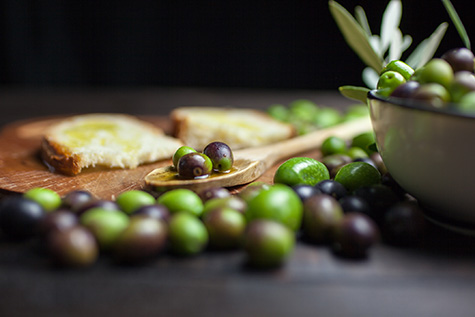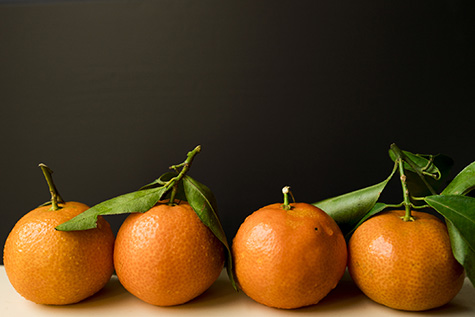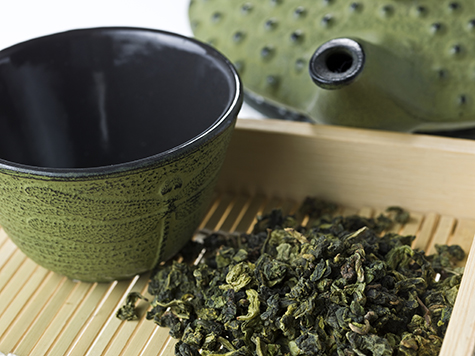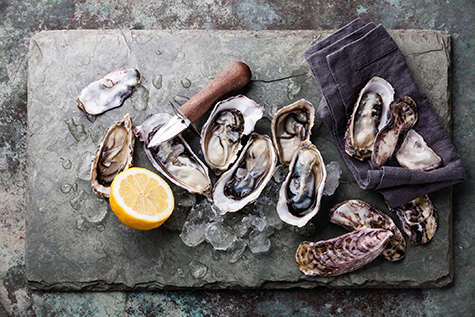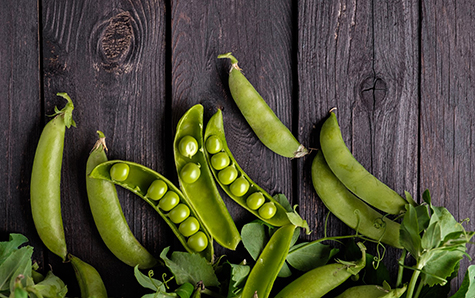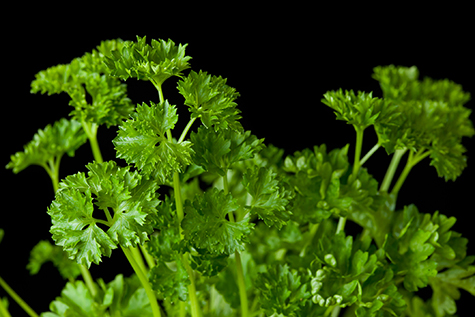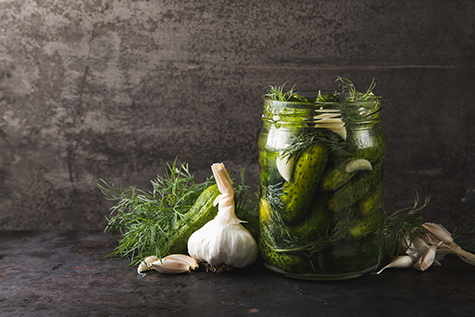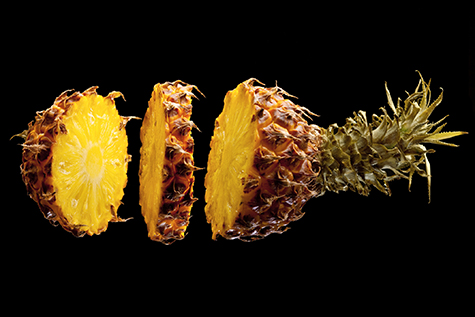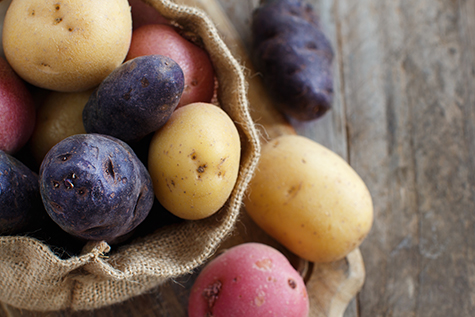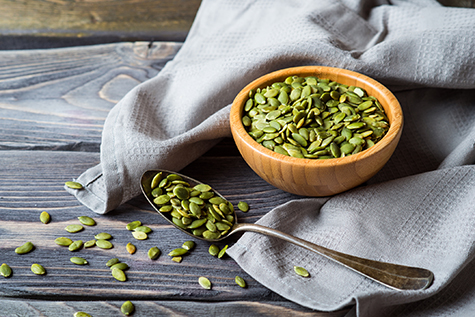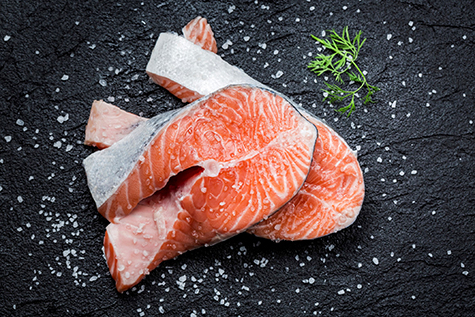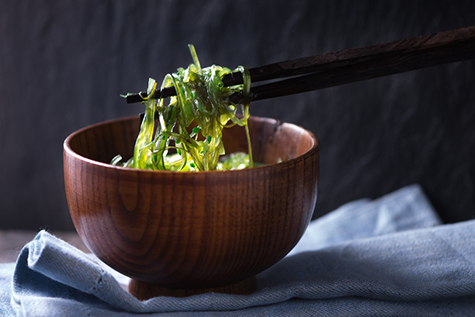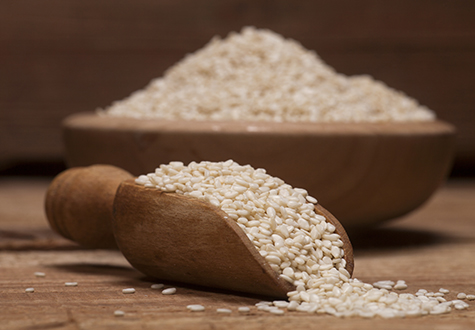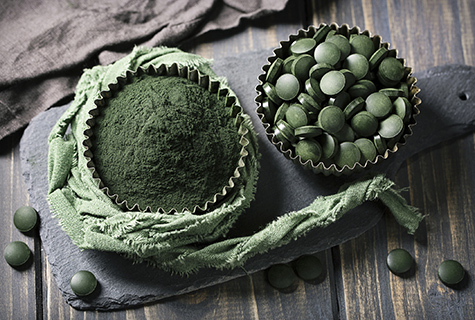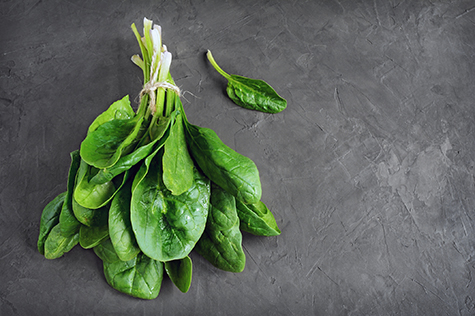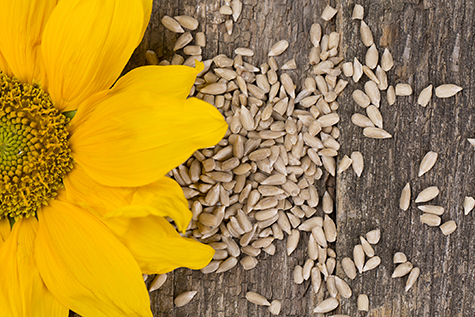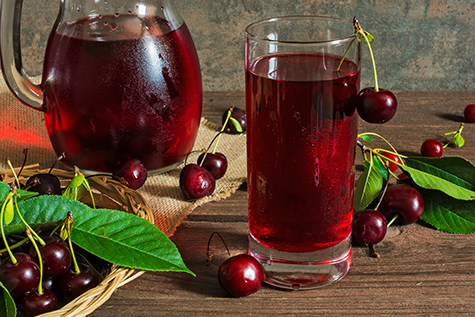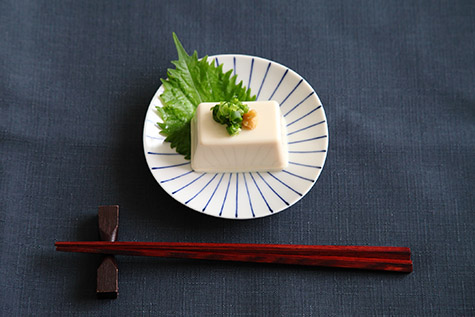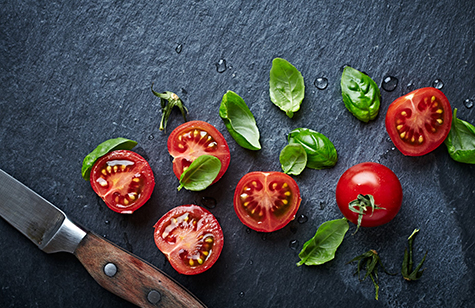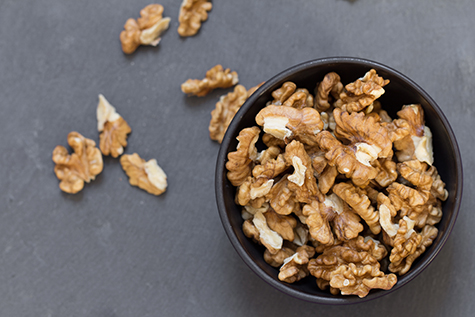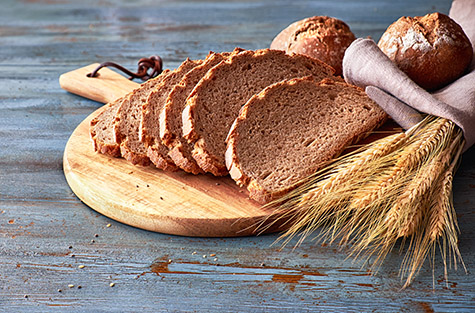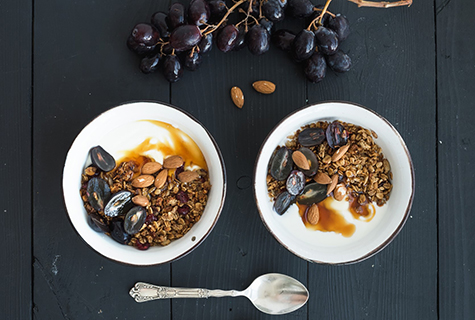Top 50 Foods That Can Help You Sleep


Sleeping well is one of the most critical things we can do for our health. Working out and eating right can only take you so far if your body is stressed from lack of sleep. It is needed to calm stress hormones like cortisol, to support the natural immune system, for repair and for cleaning out the brain – yes, that happens each night when you sleep! Foods that contain critical nutrients for sleep (including magnesium, calcium, B3, B6, B12, certain amino acids, antioxidants and melatonin regulators) top the list of 50 foods that support great sleep and should be consumed daily to support the rest and recovery process.
1. ALMONDS
Not only are almonds rich in antioxidants like vitamin E, they contain some key nutrients that support sleep as well. In particular, they contain magnesium which has been shown to improve both sleep quality and total sleep time in people with low magnesium levels. Magnesium specifically enhances melatonin production from the pineal gland in the brain and also activates GABA receptors which favor sleep as well. Enjoy a handful of almonds before bed for these important effects.
2. ASPARAGUS
Asparagus is full of vitamin K, folate and the unique antioxidant asparaguisic acid for anti-inflammatory support and calming the body, preparing it for a restful sleep. Asparagus contains the amino acid tryptophan which is linked to the neurotransmitter serotonin which then converts to the hormone melatonin. Melatonin is critical for sleep.
3. AVOCADO
Creamy avocados are packed with brain boosting vitamins B3/niacin, B5/pantothenic acid and B6 to support the neurological system and also act as precursors to support melatonin production in the brain. Just one cup of cubed avocado provides nearly 50mg of your daily magnesium needs so feel free to add this versatile fruit to breakfast, lunch and/or dinner.
4. BANANAS
The ultimate convenience food, bananas are a naturally sweet, on-the-go, sleep supporting food. Bananas are absolutely packed with B6 (1/4 of the daily requirement in one serving), a critical nutrient in reducing anxiety in some people and supporting the sleep process. Bananas also contain tryptophan which converts to the hormone melatonin which is needed to induce sleep each night.
5. BARLEY GRASS
One of the best studied functional foods for sleep is barley grass which often comes in powder form and can be purchased at a natural health store. Rich in GABA, calcium and potassium, it is said to be one of the best foods you can eat for supporting good quality sleep. Blend this green powder into a smoothie or juice and drink it before bed.
6. BEANS
All beans contain vsome key nutrients for sleep. Aside from potassium, magnesium, folate, iron, and zinc, beans are also packed with protein. They contain the amino acid tryptophan which is a precursor to the neurotransmitter serotonin which then converts to the hormone melatonin, critical for sleep. Include beans for sleep support as well as a great source of fiber.
7. BOK CHOY
Versatile, leafy bok choy is packed with important sleep-supporting minerals. One cup cooked meets 12% of the daily value for calcium which helps to regulate sleep cycles. Some studies even show that during some of the deepest levels of sleep, calcium levels in the body are higher than at other periods. Bok choy is often found in Asian cuisine so consider boosting your total calcium intake by preparing it with tofu.
8. CABBAGE
Cabbage, particularly red cabbage, has been studied on mice for its possible sleep-inducing, even hypnotic effect. The study effects were so impactful on increased sleep duration that the researchers likened it to medication diazepam, which treats anxiety. It’s hard to know if red cabbage could have the same effects in humans and at what amount, but as there are many other benefits of cabbage in the diet, it’s worth adding in the hopes it may support sleep as well.
9. CEREAL
Though cereal is more processed than many foods on this list, it can be an important source of nutrients for some people. Fortified with many vitamins and minerals, low/no-sugar, high fiber, fortified varieties made from whole grains like wheat can provide B-vitamins – particularly sleep-critical vitamins like B6 and B12 – as well as magnesium and other minerals that support the production of the hormone melatonin. Enjoy a serving of cereal for a nutrient-rich breakfast, snack, or dessert.
10. CHAMOMILE TEA
A cup of any type of tea may feel calming and relaxing in itself but there is evidence specifically on chamomile and how it supports good quality sleep. Antioxidant flavones and apigenin have been shown to induce sleepiness and reduce insomnia in studies; chamomile is a source of both. Some study participants drinking this type of herbal tea saw an improvement in sleep quality after drinking chamomile tea for just two weeks.
11. CHERRIES
Sweet cherries, sour cherries, dried cherries, and cherry juice have been studied in association with better sleep. Researchers have found that cherries are packed with antioxidants called polyphenols which create their vibrant color and may support the health of blood vessels, getting more blood to the brain. Including cherries in the diet has been shown in some studies to reduce the number of times a person wakes up during the night. Cherries are a great alternative to other sugary desserts.
12. CHICKPEAS
Chickpeas, also called garbanzo beans, are versatile and packed with critical nutrients for sleep. These little beans are rich in zinc which helps to mediate sleep in the central nervous system. Zinc status has also been linked to sleep duration in human studies. Toss them on a salad, in a sandwich or in a soup for a well-rounded dose of sleep promoting minerals.
13. CLAMS
Shellfish like clams are high in a couple critical sleep-producing nutrients including magnesium and vitamin B12. In fact, B12 directly contributes to the secretion of melatonin in the brain, a hormone critical to induce sleep. Include fresh clams in soup, stew, and served on fresh bread if you live in an area where they are produced.
14. DATES
Another way to skip a sugary dessert, dates make a wonderful after-dinner treat and also contain some nutrients that support sleep. Dates contain calcium and magnesium, both of which play a role in factors related to sleep. Though not hugely rich in either source, dates are a much better sweet-treat choice than any dessert with a stimulant like chocolate.
15. EGGS
In order to get sleep benefits from eggs, make sure to eat the entire thing because the yolks of eggs contain significant amounts of protein, zinc, choline, and vitamins A and D. In addition to containing B12 which directly contributes to the secretion of melatonin in the brain, a study on 2,025 adults found that a diet that included eggs (among other healthy foods) experienced a decreased time to fall asleep.
16. FIGS
These sweet, soft fruits are more than just a treat, they are a perfect sleep supporting food because they contain more calcium than any other dried fruit. Calcium is directly involved in sleep cycles each night so consuming calcium rich foods is essential to support a good night’s sleep. Enjoy figs as a sweet treat after dinner instead of other sugary desserts.
17. HONEY
This natural sweetener contains some interesting sleep-inducing properties, particularly during times of illness. A study of 105 children with upper respiratory infections actually improved night-time cough symptoms and sleep compared to children not treated as well as children treated with cough suppressant. Consider this simple, soothing relief during sleep-disrupting illness.
18. KALE
Always a powerhouse, it’s no surprise that kale also supports sleep. It contains all B-vitamins (aside from B-12 which are only found in animal foods) and is also rich in calming potassium and magnesium. One cup also provides about 10% of your daily calcium needs so all-around, versatile kale supports sleep-induction in so many ways.
19. KIMCHI
Spicy fermented cabbage, a staple of Korean cuisine, contains good bacteria that can help create amino acid GABA with its friendly microorganisms. It has been shown that people with insomnia often have reduced levels of GABA in the body so foods that naturally contain this compound can be very supportive of sleep.
20. KIWI
Kiwi fruits are in fact among the most sleep-supporting foods. A perfect individual serving of energy-promoting fruit, tart green kiwi fruit are naturally filled with essential nutrients including folate and vitamin C. The best studies are on consuming two kiwis an hour before bed which has been shown to improve total sleep time and reduce time awake during the night.
21. KOMBUCHA
A sweet, slightly vinegar-flavored fermented tea, kombucha contains good bacteria that can actually support sleep. This natural beverage with many potentially curative properties is packed with good bacteria that create the amino acid GABA which supports sleep. It has been shown that people with insomnia often have lower levels of GABA in the body.
22. MACA
Research supports that ground maca root which often is sold in powder form, is another functional food critical to promoting sleep. Native to Peru, maca is often known to support fertility and balance hormones. It’s calcium and potassium content as well as hexadecenoic acid specifically are compounds linked to improvements in sleep. If okayed by your doctor, blend maca into oats, smoothies, or even energy bars or balls to support sleep quality.
23. MILK
Ever heard that a glass of warm milk is good for sleep? Well, there could be something to that. Dairy products like milk, yogurt, and cheese are high in the amino acid tryptophan which is linked to the “feel good” neurotransmitter serotonin which then converts to the hormone melatonin. Melatonin is critical for sleep. Dairy is also rich in calcium which supports sleep cycles during the night. Drink a glass of milk before bed if you enjoy it!
24. MUSHROOMS
Most edible varieties of mushrooms provide an important source of B3 – also known as niacin. This B-vitamin has been shown to promote the availability in the brain of tryptophan which is needed for serotonin synthesis which is a precursor for melatonin production. One cup of crimini mushrooms provides about 20% of your daily B3 needs so add them to omelets, salads, soups and other dishes to support your sleep.
25. MUSTARD GREENS
An underutilized leafy green, mustard greens have a spicy flavor and are quite hearty to chop into salads or add into recipes where greens play a central role. Offering over 13% of the daily value for calcium, these greens are critical to add into the diet for this important mineral. There is evidence that calcium plays a critical role in quality of sleep and sleep cycles.
26. OATS
The type of fiber in whole grain oats can actually help your brain get more fuel and nutrients. Oats support the cardiovascular system by lowering LDL bad cholesterol which can keep plaque buildup at a minimum, helping with optimal blood flow to the brain. Slow burning complex carbohydrates like oats can provide steady blood sugar to optimize concentration and learning. Best of all, oats are high in the amino acid tryptophan which converts to the hormone melatonin via serotonin in the brain to support sleep.
27. OKRA
This green veggie is packed with important sleep-supporting minerals. It actually meets nearly 10% of the daily value for calcium when cooked. Calcium helps to regulate sleep cycles and some studies even show that during some of the deepest levels of sleep, calcium levels in the body are higher than at other periods of sleep. Sauté up some okra for an unexpected boost of calcium.
28. OLIVES
Don’t forget that simple olives are actually a fermented food and fermented foods contain compounds that support sleep. Packed with good bacteria that are not only supportive for the gut, fermented foods like olives can help create amino acid GABA which is sleep-promoting. It has been shown that people with insomnia often have lower levels of GABA in the body so eat delicious, savory olives to correct this issue!
29. ORANGES
The ultimate grab-and-go snack, oranges could be consumed as an after-dinner snack to help support a good night’s sleep. Critical for the different cycles of sleep that occur throughout the night, calcium-rich foods are important to include in the diet. Oranges actually are a less-thought-of calcium-containing fruit. One medium fruit contains over 5% of your daily calcium needs so, though it’s low compared to tofu, greens or dairy foods, it IS a source of calcium in a delicious, sweet package.
30. OOLONG TEA
This fermented tea is so fragrant and unique that even the scent of it enhances the response of GABA receptors, critical for sleep. GABA receptors can play an important role in treating anxiety and sleep disturbances. Keep in mind that oolong tea can contain low levels of caffeine so this would be a beverage best enjoyed earlier in the day so that it doesn’t actually disrupt sleep.
31. OYSTERS
A study on 120 men found that eating zinc-rich foods including oysters – a very rich source of this mineral – decreased the time it took to fall asleep as well as improved sleep efficiency. Having adequate zinc levels appears to be important in sleep quality so if you enjoy seafood, adding in oysters could be beneficial.
32. PEAS
Green peas contain folate and other supportive B-vitamins including B3/niacin that aid in clearing irritating homocysteine from the blood, supporting the cardiovascular system and boosting blood flow to the brain. One cup of green peas provides nearly 20% of your B3 needs which is critical in supporting the body in producing sleep hormone melatonin for a better night’s sleep.
33. PARSLEY
Though an under-utilized food in American cuisine, other cultures incorporate parsley into dishes for the flavor and incredible health benefits. This vibrant herb contains some important sleep-inducing nutrients. Enjoy flatleaf or curly varieties in your next dinner for a boost of calcium, magnesium and B3/niacin which all play a role in sleep promotion and quality.
34. PASSIONFLOWER TEA
Passionflower is often taken in supplement or tincture form for improving insomnia and other sleep problems but you can get a lower, subtler dose through tea. Often sold as “tranquility tea”, this herb contains both sedative and hypnotic properties. There is evidence that Native American tribes included it for medicinal uses in their traditional medicine, sometimes for sleep.
35. PICKLES
Another fermented food, pickles can contain good bacteria that is not only helpful for the gut but can help create amino acid GABA which supports sleep. It has been shown that people with insomnia often have reduced levels of GABA in the body so foods that naturally contain this compound can be helpful if you can’t sleep. Make sure to choose the varieties kept cold in the refrigerated section of the grocery store to keep the bacteria alive and thriving.
36. PINEAPPLE
Sweet-tart pineapple is a wonderful treat to enjoy after dinner – not only can it replace sugar-filled desserts, but it also contains several vitamins and minerals that support sleep. A good source of B-6 as well as magnesium, pineapple can calm the body and support the brain in getting the rest it needs at night.
37. POTATOES
Don’t let potatoes fool you; this simple food is not only packed with nutrients, but may aid in better sleep. A study on 2,025 adults found that a diet that included potatoes (among other healthy foods) helped their ability to fall asleep. This could be because potatoes contain several vitamins and minerals that support sleep including magnesium and B6.
38. PUMPKIN SEEDS
Also known as pepitas, pumpkin seeds are absolutely packed with critical nutrient magnesium which not only stimulates melatonin production in the brain but also increases GABA which is a neurotransmitter that creates insomnia at low levels. Just one ounce of pepitas provides about 170 mg of magnesium. The recommended dietary allowance for women is just 310-320 mg and 400-420 mg for men. Eat a couple ounces during the day to meet your needs and support sleep tonight.
39. SALMON
Salmon and other seafood are a good source of sleep promoting amino acid tryptophan. This protein building block is linked to the “feel good” neurotransmitter serotonin which then converts to the hormone melatonin. Melatonin is critical for sleep. Better, yet, salmon is rich in minerals, healthy omega-3s fats and B12 – another critical nutrient for the production of melatonin. The American Heart Association recommends two servings of salmon per week.
40. SEAWEED
This group of sea vegetables is always packed with minerals from the environment in which is grows – the ocean. So many varieties can be enjoyed for the benefit of sleep. A 2015 study on adults in Japan found that a diet that included seaweed, a common food among that population – in addition to other healthy foods – experienced a decreased difficulty in falling asleep. Many seaweeds are a rich source of calcium and magnesium which are both strongly associated with better sleep.
41. SESAME SEEDS
Tiny sesame seeds contain an important sleep-inducing amino acid: tryptophan. This building block of protein in the body is directly linked to the neurotransmitter serotonin which then converts to the hormone melatonin. Melatonin helps signal the body that it’s time for sleep so include sesame seeds sprinkled on your next stir-fry or salad or enjoy them as tahini in hummus.
42. SPIRULINA
This blue-green algae is often sold in powder form alongside it’s partner, chlorella. Both algae sources are rich in a variety of vitamins and minerals that support sleep including vitamins B2 and B3. Spirulina also contains magnesium and calcium, more sleep-supporting nutrients. Mix it into a smoothie for a bright, vibrant, nutrient-dense twist that could help you catch more zzz’s.
43. SPINACH
This sweetest of the dark leafy greens could certainly support sleep. Spinach is packed with the sleep promoting minerals calcium and magnesium and is less bitter than other g reens like kale or collards. Blend baby spinach into smoothies, add to omelets, salads, and sandwiches or boil/sauté it down for a more concentrated source of magnesium which, when blood levels are low, has been linked to insomnia.
44. SUNFLOWER SEEDS
Simple sunflower seeds are more than just a tasty snack; they are rich in sleep-producing vitamins and minerals. A source of B6 and magnesium, one ounce of sunflower seeds provides only 163 calories and a lot of nutrients. Snack on sunflower seeds directly (bonus if you have to shell them yourself) or sprinkle on salads or into granola.
45. TART CHERRY JUICE
Found on a shelf at your local natural food store, possibly in the supplement section, tart cherry juice has been proven in double-blind studies to both reduce insomnia as well as shorten the time it took to fall asleep by nearly 20 minutes in older adults. Follow the instructions on the label but generally tart cherry juice is mixed in water and consumed before bed to promote sleep.
46. TOFU
A healthy vegetarian and vegan friendly protein, soy contains important minerals, fiber, antioxidants and polyunsaturated fats. Soybeans are rich in several sleep-inducing vitamins including riboflavin/B2 and B6 which is needed in the brain to convert tryptophan to serotonin which then supports melatonin production to fuel a good night’s sleep. Soy foods are also high in magnesium and calcium, other important minerals for sleep.
47. TOMATOES
This savory fruit is a sleep-inducing powerhouse. One cup includes nearly 10% of your daily needs for vitamin B6 and 5% of your daily needs for magnesium. Both of these nutrients are critical for the brain to produce hormones needed for sleep. Include tomatoes daily in sauces, soups, stews, with eggs and on salads.
48. WALNUTS
These healthful nuts are packed with omega-3 fatty acids in the form of alpha-linolenic acid (ALA). Omega-3s have been linked to decreasing inflammatory markers which can become elevated in times of stress, a major disruptor of sleep. Walnuts are also a source of the amino acid tryptophan which is linked to the neurotransmitter serotonin which then converts to the hormone melatonin which is critical for sleep.
49. WHOLE WHEAT
Wheat products are rich in a critical nutrient for sleep – B6, also called pyridoxine. B6 creates serotonin from tryptophan so even if you consume foods rich in that amino acid, B6 is needed for the body to make the sleep-producing effects take place. Bonus – whole wheat is high in fiber and minerals like manganese, copper, magnesium and pantothenic acid.
50. YOGURT
There’s a double benefit with yogurt. Dairy products like milk, yogurt, and cheese are high in the amino acid tryptophan which is linked to the “feel good” neurotransmitter serotonin which then converts to the hormone melatonin. Yogurt also contains vitamin B12, another precursor. Melatonin is critical for sleep so think beyond breakfast for yogurt and have some before bed instead.
RESOURCES
Bravo R, Matito S, Cubero J, Paredes SD, Franco L, Rivero M, Rodríguez AB, Barriga C. Tryptophan-enriched cereal intake improves nocturnal sleep, melatonin, serotonin, and total antioxidant capacity levels and mood in elderly humans. Age. 2013;35(4):1277-85.
Diana M, Quílez J, Rafecas M. Gamma-aminobutyric acid as a bioactive compound in foods: a review. Journal of Functional Foods. 2014;10:407-20.
Foodtrients. Passionflower. https://foodtrients.com/news-page/health/passionflower-eases-anxiety-may-help-sleep/. Published Jan 2017. Accessed 1/29/19.
Hossain SJ, Aoshima H, Koda H, Kiso Y. Fragrances in oolong tea that enhance the response of GABAA receptors. Bioscience, biotechnology, and biochemistry. 2004;68(9):1842-8.
Khan N, Mukhtar H. Tea and health: studies in humans. Current pharmaceutical design. 2013;19(34):6141-7.
Kurotani K, Kochi T, Nanri A, Eguchi M, Kuwahara K, Tsuruoka H, Akter S, Ito R, Pham NM, Kabe I, Mizoue T. Dietary patterns and sleep symptoms in Japanese workers: the Furukawa Nutrition and Health Study. Sleep medicine. 2015;16(2):298-304.
Manchali S, Murthy KN, Patil BS. Crucial facts about health benefits of popular cruciferous vegetables. Journal of Functional Foods. 2012;4(1):94-106.
Marco ML, Heeney D, Binda S, Cifelli CJ, Cotter PD, Foligné B, Gänzle M, Kort R, Pasin G, Pihlanto A, Smid EJ. Health benefits of fermented foods: microbiota and beyond. Current Opinion in Biotechnology. 2017 Apr 1;44:94-102.
Messina V. Nutritional and health benefits of dried beans. The American journal of clinical nutrition. 2014 Jul 1;100(Supplement 1):437S-42S.
Paul IM, Beiler J, McMonagle A, Shaffer ML, Duda L, Berlin CM. Effect of honey, dextromethorphan, and no treatment on nocturnal cough and sleep quality for coughing children and their parents. Archives of pediatrics & adolescent medicine. 2007;161(12):1140-6.
Peuhkuri K, Sihvola N, Korpela R. Diet promotes sleep duration and quality. Nutrition research. 2012 May 1;32(5):309-19.
Saito H, Cherasse Y, Suzuki R, Mitarai M, Ueda F, Urade Y. Zinc‐rich oysters as well as zinc‐yeast‐and astaxanthin‐enriched food improved sleep efficiency and sleep onset in a randomized controlled trial of healthy individuals. Molecular nutrition & food research. 2017;61(5):1600882.
Srivastava JK, Shankar E, Gupta S. Chamomile: a herbal medicine of the past with a bright future. Molecular medicine reports. 2010;3(6):895-901.
Tochi BN, Wang Z, Xu SY, Zhang W. Therapeutic application of pineapple protease (bromelain): a review. Pakistan journal of nutrition. 2008;7(4):513-20.
Worlds Healthiest Food Orange. http://www.whfoods.com/genpage.php?tname=foodspice&dbid=37 Accessed 1/29/19.
Worlds Healthiest Foods Banana. http://www.whfoods.com/genpage.php?tname=foodspice&dbid=7 Accessed 1/28/19.
Worlds Healthiest Foods Tomato. http://www.whfoods.com/genpage.php?tname=foodspice&dbid=44 Accessed 1/29/19.
Zeng Y, Yang J, Du J, Pu X, Yang X, Yang S, Yang T. Strategies of functional foods promote sleep in human being. Current signal transduction therapy. 2014;9(3):148-55.
